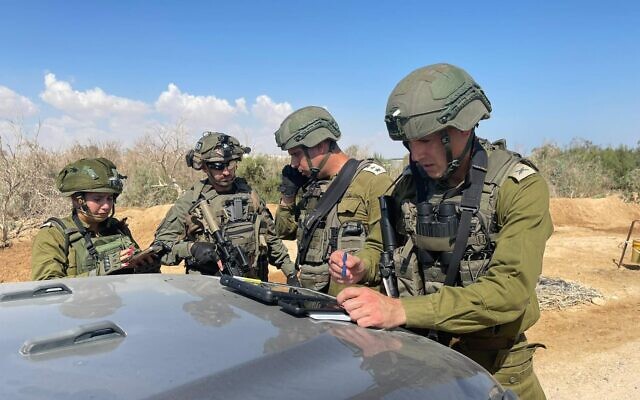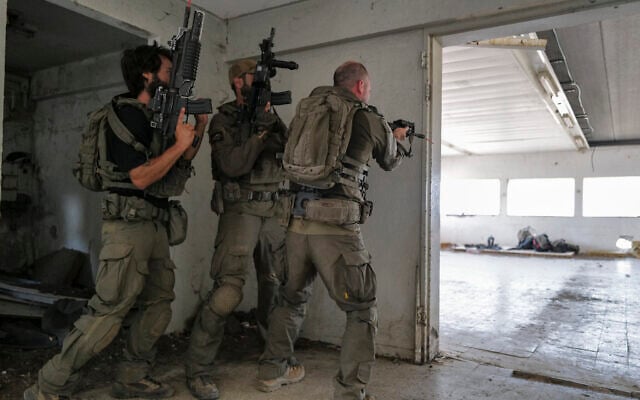



In Israel’s most prolonged and grueling war, triggered by Hamas’s October 7, 2023, attack on the country’s south, the Israel Defense Forces’ heavy reliance on its reserve forces has become clearer than ever. Among those answering the call are hundreds of citizens over the age of 50, stepping up to help ease the military’s growing manpower strain.
Normally, soldiers bow out of reserve duty at age 40, officers at 45, and those in special roles — including positions like drivers — at 49, making reserve duty rare for older individuals.
According to recent IDF statistics, approximately five percent of the reservists currently serving are over the age of 50. Since the outbreak of the war in Gaza, the number of reservists in this age demographic has increased by some 50%.
For many, the decision to return to uniform came with immense sacrifice. Older reservists repeatedly spoke of the struggle of leaving their families and professional lives behind, sometimes for months at a time, in order to serve.
Fifty-year-old Zev Jacobson, a volunteer reservist, is no stranger to IDF service. Today the owner of a tour company, he immigrated to Israel 33 years ago as a lone soldier and continued reserve duty until the age of 42. After October 7, he decided to don his uniform once more — a moment he described as a wake-up call for himself and many others.
“Until October 7, there was a feeling that you didn’t need to worry… If there’s an issue, then the army is taking care of it — civilians don’t need to get involved,” he explained. “I think we realized on October 7 that, unfortunately, that’s not necessarily the case.”
A week after the attack, Jacobson volunteered for guard duty in his hometown of Beit Shemesh before eventually joining the newly established 96th “Gilad” Division.
The 96th Division is tasked with defending the Jordan border, and is staffed by both standing army troops and five new reserve light infantry brigades, the latter of which are composed of volunteer reservists.
Unlike most reservists, who return their gear after duty, members of the 96th Division’s reservist brigades keep their weapons and equipment at home so they can respond immediately to sudden events in their area of residence when not deployed to the Jordan border.
Jacobson reflected on the shift in mindset the war brought: “Sometimes, you need to be responsible for your own security, for that of your family, for that of your community, and your city.”
“Many of us [older reservists] felt that we still have something to give,” he added. “We may not be in the same physical shape that we were when we served in the army, but we can still serve and bring a maturity to the service.”
The 96th Division’s volunteer reserve brigades were not the only units created after October 7 to harness older reservists’ willingness to serve.
The “Har Zion” Mobility Unit, formed under the Home Front Command’s new reserve Yaara Division, was designed to provide older volunteers with meaningful roles while supporting operational needs.
At first, the unit recruited drivers with off-road vehicles to transport troops south. As the war went on, it grew to about 500 volunteers nationwide, all equipped with 4x4s. The unit’s mission is to ease the workload of other formations rather than engage in combat.
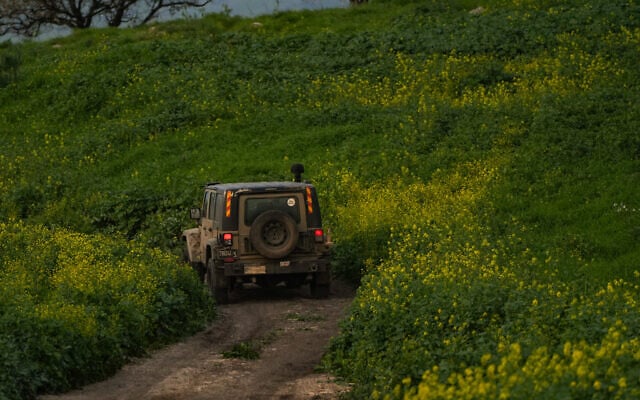
For many, joining was instinctive.
“On October 7, I wanted to return [to the reserves] immediately,” recalled Eyal, a 55-year-old hi-tech manager and father of three who requested anonymity. “There was a sense that this was the time to drop everything in order to save the country… I didn’t want to watch from the sidelines.”
Another member, Achiad S., 51, a father of three and owner of an event planning business, said his motivation was both operational and symbolic. Operationally, he cited the IDF’s manpower shortage. Symbolically, he saw service as a message of responsibility to Israeli society.
“We must reinvigorate the Israeli spirit,” he said. “People are watching us, our children are watching us… and they understand that every person must step up to whatever extent they can.”
Older reservists also emphasized their desire to relieve younger soldiers of some of the load.
Yonatan, 65, who serves at the IDF Central Command headquarters and requested anonymity, explained that older reservists lack many of the challenges younger peers face.
“Older people have an easier life in general. People at the age of 25 are at a difficult stage in life. They are surrounded by major stressors,” he said, citing milestones such as choosing a university major, finding a job, or starting a family. “When you’re older, you’ve already figured all these things out.”
“We have it, to a certain extent, a little bit easier [than younger reservists],” Jacobson said, echoing Yonatan’s sentiment. “In general, our children are older — it’s not like we have little kids at home.”
Fellow reservist Yuval Richler, 53, who serves in an Israel Air Force air crew, noted that while older soldiers may not be navigating milestones like career choices or starting families, many still carry demanding responsibilities of their own. In his civilian life as a hi-tech worker, Richler also cares for his elderly father — a role that makes balancing duty and home especially challenging.
Yet for him, these strains were outweighed by the value of helping younger soldiers. He recalled how he and other older reservists often gave up rest days so that their younger counterparts could take them instead.
“In our view, we were willing to stay [on base] and pull double shifts… for soldiers who truly needed that time off.”
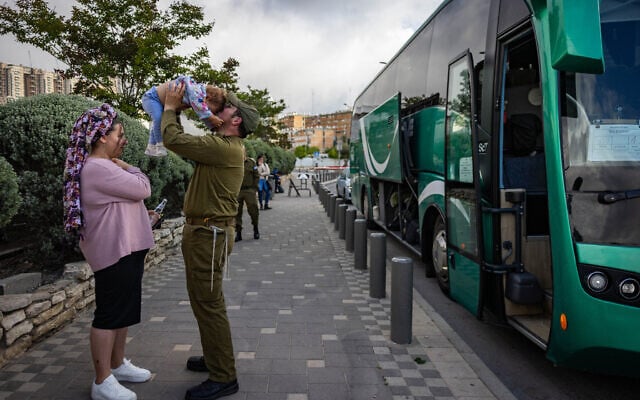
While older reservists describe their sense of duty in practical terms, military experts stress that their contribution is more symbolic than transformative.
“These people [older reservists] feel an obligation to come and contribute and to be part of this long war that we find ourselves in,” said Dr. Ariel Heimann, a senior researcher at the Institute for National Security Studies (INSS) and the IDF’s first chief reserve officer.
According to Heimann, the phenomenon is not new. “It’s in the ethos of reserves,” he said, noting that even during the 1967 War of Attrition, older soldiers joined not because of a manpower shortage, but to show solidarity with younger troops.
Today, he explained, most older reservists serve in support roles, not combat units.
“You won’t see soldiers at this age in the first group of fighters that enter houses in Gaza or Lebanon,” he said.
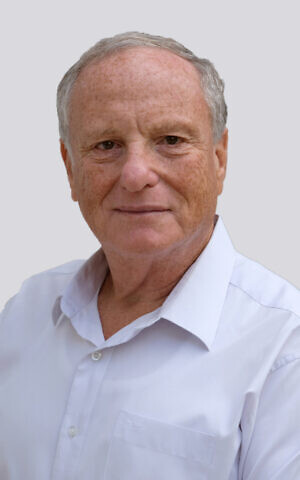
On whether they can ease the manpower crisis, Heimann was blunt: “It’s more of a symbolic move.”
He offered an analogy: “If you need NIS 1,000, and someone offers you NIS 5, you don’t oppose it. It might help a little, but it doesn’t solve the problem.”
He added that older reservists “are not a substitute in any way, shape, or form for the ultra-Orthodox draft.”
The army has repeatedly stated it is facing a shortage of about 12,000 soldiers, including 7,000 combat troops. Older reservists cannot fill that gap, while efforts to draft the Haredi community remain fiercely opposed by ultra-Orthodox leaders. About 80,000 Haredi men between the ages of 18 and 24 are eligible for service, but have not enlisted.
Reservist Achiad put it bluntly: “Thanks to the fact that I go to reserves, it’s easier for them not to pass these [draft] laws, because they know that other people will do it.”
Reservists often speak of the benefits of their service, but for older soldiers, those benefits are rarely financial. Reserve salaries are based on the pay soldiers earn in their civilian lives, with the minimum compensation set at NIS 9,632 ($2,600) a month and a maximum of NIS 50,695 ($13,688), as of 2025. By comparison, conscripted combat soldiers serving their mandatory duty earn just NIS 2,647 ($715) a month.
In practice, this means reservists with higher-paying jobs may lose money by serving, yet they continue to report for duty out of commitment to their units and country. Some companies, like Eyal’s, step in to cover the gap and compensate employees so they do not suffer financially for their service.
Despite these financial limits, many described their service as rewarding and even rejuvenating.
Achiad highlighted the social and unifying aspect: “In my company, just like any other reserve company, there is a wide spectrum of people with different backgrounds and beliefs. We are learning to speak with one another, and to strive for the same shared goal.”
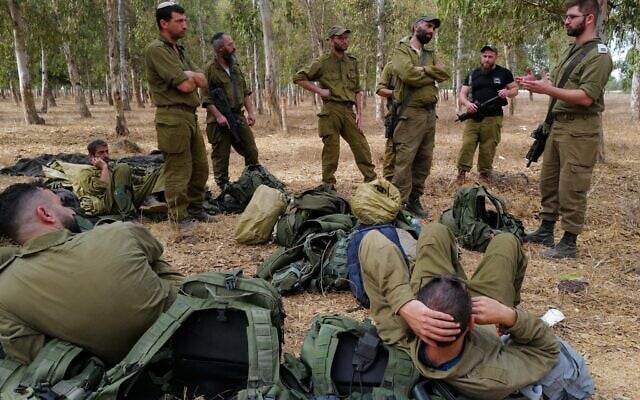
This sense of camaraderie and shared purpose often translates into personal enjoyment, even amidst the challenges of reserve duty.
“I enjoy my reserves. That doesn’t mean that there aren’t difficult moments,” Yonatan said. “But when you’re doing something that you love… then [the difficult moments] are good for you.”
Both Yonatan and Eyal noted the revitalizing effect of serving with younger soldiers.
“If you spend time with younger people, it will make you feel younger,” Yonatan said. Eyal agreed, adding that service makes him feel more youthful, rather than weighed down.
For Richler, the rewards of reserve duty were deeply personal. During the war, he found himself stationed on the same air base as his daughter, where he naturally took on the role of mentor not only to her, but also to her friends.
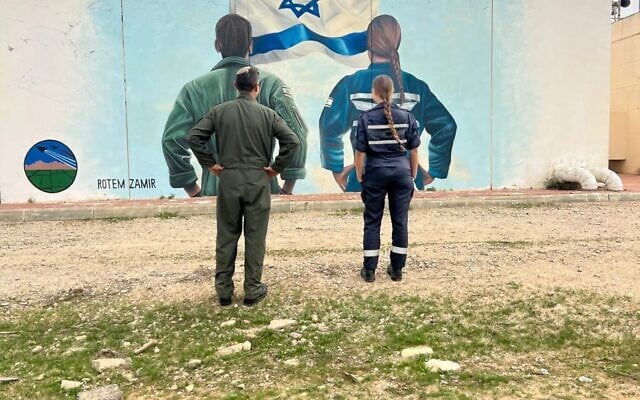
“The job today in the reserves is on one hand to get the operational work done, but also to be a father or therapist for the younger soldiers… who often look for someone older to speak with,” he said.
Yet alongside the rewards, older reservists described unique emotional challenges. Richler said that watching his daughters’ friends fall in battle was far more painful than losing comrades of his own generation.
“Now, I view every [fallen soldier] through the perspective of a father, knowing what the families must go through. This is much harder for me,” he said. “It’s harder to see close friends of my daughters getting killed than it was seeing my own friends killed back in the day.”
Like most older reservists, Richler had already served in several wars and operations before October 7. Yet he said the current conflict felt remarkably different. While the first days of call-up orders felt familiar, the prolonged intensity soon set it apart.
“For the first few months [of the war] I was completely disconnected from my family and my job,” he recalled.
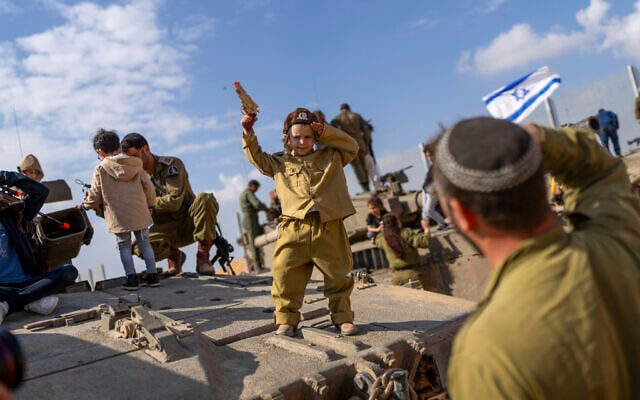
Jacobson, who served in Operation Defensive Shield in 2002 and the Second Lebanon War in 2006, added that this war feels more personal. “The threat of terror is so close to home — one has a very strong feeling to protect their own home, as opposed to fighting on the borders.”
“This is the most intense war we’ve had since the Yom Kippur War,” Yonatan noted. However, he stressed that for soldiers on the battlefield, the distinction between “big” and “small” wars barely matters: “From the national point of view, a small war is a small war. But from the perspective of a soldier on the battlefield, war is war.”
The scale and duration of the fighting have also taken a psychological toll on Israeli troops. According to IDF data, military suicide rates have risen since October 7, most involving reservists, underscoring the pressure of repeated and extended call-ups.
Heimann said the IDF has begun taking steps to reduce the strain, such as scaling back the number of soldiers deployed in Gaza.
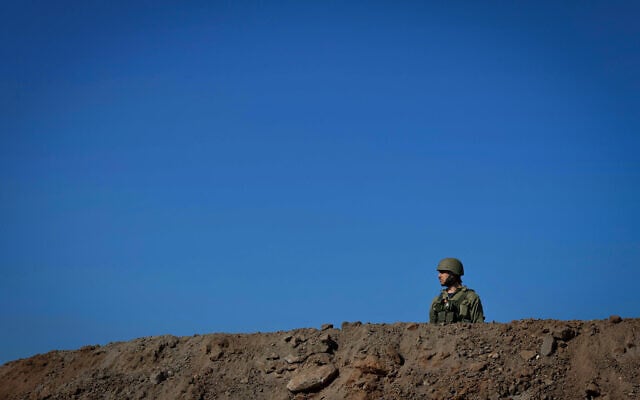
“If they decrease the number of days reservists can serve to 70 or 80 days annually, [reservists] will be more successful,” he explained.
Currently, reservists on regular call-ups are required to serve 42 days per year, but emergency call-ups can be indefinite, extended repeatedly as long as the government continues to authorize the IDF’s operations.
With the security cabinet recently voting in favor of plans to occupy Gaza, Heimann cautioned that the IDF may not be able to sustain the heavier demands if reserve days rise again.
Despite the difficulties, many older soldiers described their service not as an obligation but as a gift. Jacobson called it a “privilege,” rather than a “burden” to serve as an Israeli citizen in the IDF.
Achiad echoed that feeling, summing it up simply: “I didn’t choose to be Israeli, I was just lucky.”

